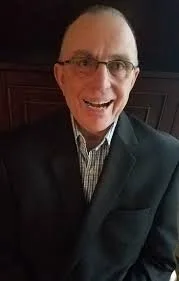Fred Hogan
Fred Hogan’s life has been defined by service, honor, and an unwavering pursuit of justice. A veteran of the United States Army, he was shaped by the discipline and values of military service — resilience, loyalty, and responsibility — which became guiding principles in his civilian life. After returning home, Hogan joined the New Jersey police force, where he quickly earned a reputation for diligence and integrity. Yet it was also during this time that he began to recognize the flaws and contradictions of the criminal justice system. He saw how prejudice, shortcuts, and institutional pressure could distort truth, and these observations planted the seeds for the transformative career shift that would define his legacy.
Hogan left the badge behind to become a senior investigator with the New Jersey Office of the Public Defender. In this role, he crossed from enforcing the law to defending its integrity, devoting himself to uncovering wrongful convictions and ensuring that the most vulnerable defendants received a fair hearing. His transition was not just professional but moral, embodying his belief that true justice required confronting the system’s failures head-on rather than ignoring them.
It was in this work that Hogan became deeply involved with one of the most infamous cases of wrongful conviction in American history — that of Rubin “Hurricane” Carter and John Artis, wrongfully convicted of a 1966 triple murder in Paterson, New Jersey. Hogan’s investigative persistence and refusal to accept easy answers made him a critical figure in the decades-long struggle for their freedom. He uncovered inconsistencies in witness testimony, gathered new evidence, and ultimately testified at Carter and Artis’s 1976 retrial, introducing his own handwritten notes that exposed the prosecution’s case as a fabrication. In his acclaimed biography Hurricane: The Miraculous Journey of Rubin Carter, author James S. Hirsch underscored Hogan’s importance, quoting Carter as saying, “Without Hogan, I would have died in prison.” Hirsch himself affirmed that Hogan was “instrumental in helping Rubin and John Artis win their freedom,” a testament to the magnitude of his contribution.
Hogan’s relationships with Carter and Artis grew beyond the courtroom into enduring friendships, binding him personally as well as professionally to their cause. These experiences deepened his commitment to justice and broadened his voice in debates over wrongful conviction and the death penalty. His credibility and moral clarity earned him appointments to the New Jersey Supreme Court’s District III Ethics Committee and the state’s Wrongful Conviction Review Board, where his unusual perspective — shaped by his service as a soldier, a policeman, and a defense investigator — gave him authority as both a critic and a reformer.
Hogan also carried his advocacy into the classroom and the public square. At Tufts University, he was invited to speak on the death penalty, where he delivered a powerful lecture that combined legal insight with personal witness. Students and faculty alike were struck by his candor, his storytelling, and the moral urgency of his message. His ability to bridge the professional and the personal, the systemic and the human, made him not only a practitioner of justice but also a teacher of it.
In 2019, Hogan chronicled his extraordinary journey in the book Justice on the Ropes. Both a memoir and a call to action, the book detailed his military service, his time in law enforcement, his investigative work, and his friendships with Carter and Artis. The launch of the book at Brookline Booksmith I organized, was more than a literary event — it was a celebration of a life devoted to truth, a gathering of advocates, students, and citizens inspired by his story and determined to continue the fight against injustice.
Through every chapter of his life — soldier, policeman, investigator, advocate, and author — Fred Hogan has exemplified courage, integrity, and empathy. His work with Rubin Carter and John Artis not only helped overturn one of the most notorious wrongful convictions in American history but also demonstrated the power of one individual’s determination to confront systemic failure. His story stands as both a cautionary tale about the fragility of justice and an enduring example of what can be achieved when conscience and courage prevail.
Fred is a true, humble, and noble man. He wins the respect and admiration of everyone he meets. I am greatly privileged to know him.

